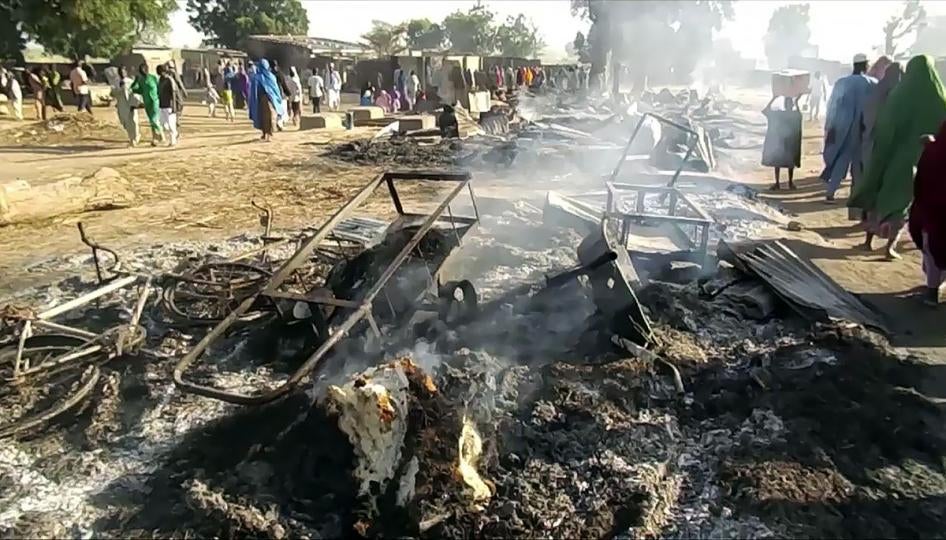Nigeria: surge in attacks leaves civilians fleeing and at risk

Scene of a suspected Boko Haram attack in northeastern Nigeria, showing aftermath of violence
Gunmen attacked a security convoy on the Gusau-Funtua road in Zamfara state, killing five police officers and three paramilitary personnel, according to the state governor, Africanews reported on October 17.
Witnesses said the assailants lay in wait along the route, highlighting persistent insecurity in the region. Although no organization has claimed responsibility, such incidents reflect ongoing tensions between herders and farmers over land and water access.
In Borno state, northeastern Nigeria, more than 5,000 residents have fled to Cameroon after Boko Haram militants seized the town of Kirawa, according to local officials. The attackers set fire to homes and a district chief’s palace while targeting civilians and local vigilantes, forcing many to abandon their communities despite some successful defensive efforts. Boko Haram and its offshoot, ISWAP, continue to exploit vulnerabilities in the region, deepening instability across multiple towns.
The humanitarian situation in the northeast remains dire. Expectant mothers face extreme risks as hospitals have been destroyed or rendered non-functional, and access to medical care is limited by insecurity, damaged roads, and staff shortages.
Nigeria recorded over 75,000 maternal deaths in 2023, more than a quarter of the global total, demonstrating the deadly consequences of conflict-driven service disruptions. Women in Borno state frequently navigate unsafe roads and poorly equipped clinics to reach even basic care.
Dwindling international aid is worsening the crisis. The World Food Program has warned that cuts in support could push desperate families toward joining Boko Haram, as food insecurity and lack of resources leave communities vulnerable. Médecins Sans Frontières reported that hundreds of children have already died this year due to insufficient healthcare access, highlighting the human toll of declining aid. Experts note that militant groups can exploit these hardships to attract recruits, particularly among young people.
The combination of insurgent attacks, collapsing health services, and insufficient humanitarian assistance underscores the fragility of communities in both Zamfara and Borno. Civilians face constant threats, while mothers and children encounter some of the highest risks globally in a context where violence and systemic neglect intersect.
Analysts caution that without sustained intervention—improving security, restoring essential services, and providing consistent aid—the cycle of displacement, vulnerability, and recruitment into armed groups is likely to continue.
Africanews, Maghrebi.org
Want to chase the pulse of North Africa?
Subscribe to receive our FREE weekly PDF magazine










